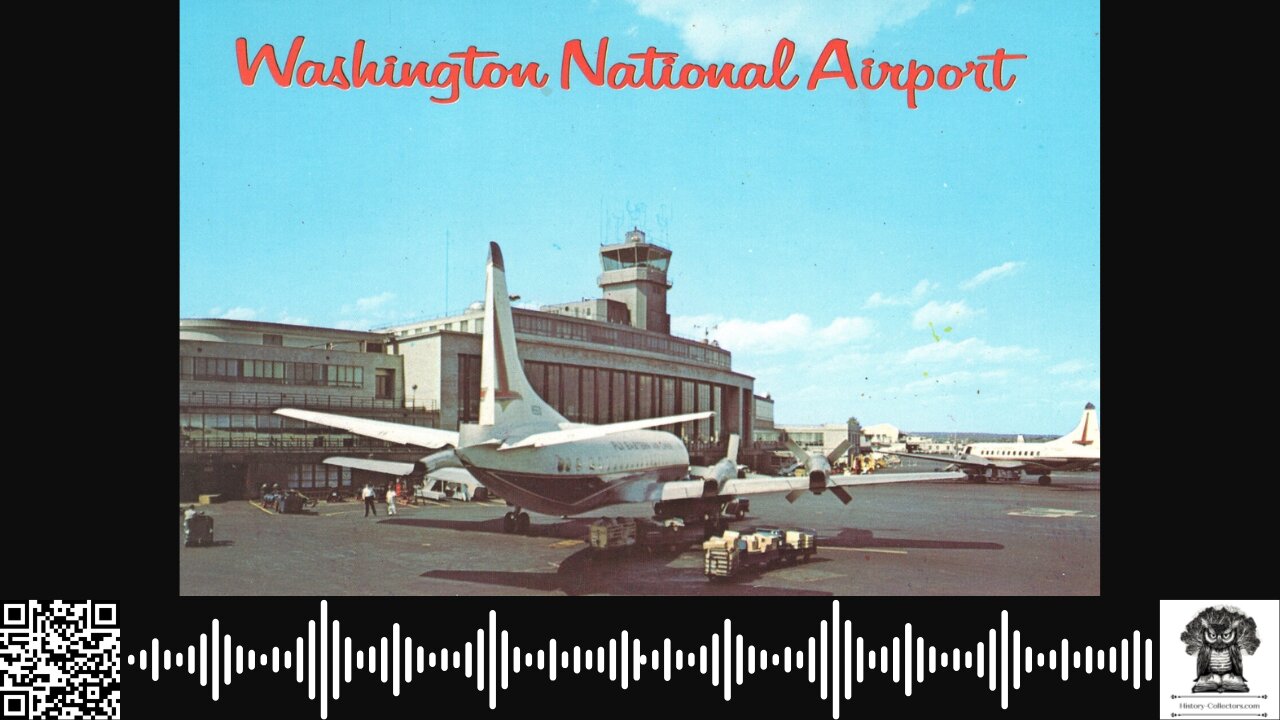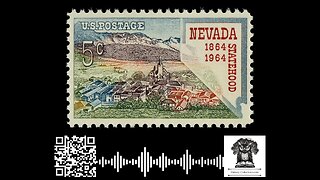Premium Only Content

#OnThisDate February 6, 1998: Washington National Rebranded
https://history-collectors.com/ | Own A Piece Of History
President Bill Clinton Signed Legislation Officially Renaming Washington National Airport To Ronald Reagan Washington National Airport. This Change Honored The 40th President Of The United States On His 87th Birthday. The Legislation, Introduced As Senate Bill 1575 By Senator Paul Coverdell Of Georgia, Passed The United States Senate On February 4, 1998, With A Vote Of 76-22. The House Of Representatives Approved The Bill The Following Day, And President Clinton Signed It Into Law On February 6, 1998, Ensuring That The Airport Serving The Nation's Capital Bore The Name Of The Former President.
The Renaming Of Washington National Airport Was Not Without Controversy. Many Local Officials In Washington, D.C., And Northern Virginia Opposed The Decision, Arguing That The Airport Already Honored George Washington, The Nation’s First President. Furthermore, Some Critics Noted That Another Major Federal Building In Washington, The Ronald Reagan Building And International Trade Center, Had Recently Been Named After Reagan, Making The Addition Of His Name To the Airport Redundant. Despite This Opposition, Congress Moved Forward With The Name Change, Backed By Republican Lawmakers Who Saw It As A Fitting Tribute To Reagan’s Legacy.
One Of The Main Points Of Contention Surrounding The Renaming Process Was The Cost And Logistical Burden. The Legislation Specifically Stated That No Federal Funds Would Be Used To Implement The Change. As A Result, Local And State Authorities Bore The Financial Responsibility For Updating Signage, Documents, And Branding Associated With The Airport. The Washington Metropolitan Area Transit Authority (WMATA), Which Operates The Metro System Serving The Airport, Initially Resisted Renaming The Corresponding Metro Station. However, In 2001, Congress Mandated The Name Change As A Condition For Receiving Future Federal Funding. This Forced WMATA To Update Station Signs And Announcements, Aligning The Metro Station’s Name With The Newly Designated Ronald Reagan Washington National Airport.
The Renaming Of The Airport Highlighted A Broader Trend In American History Of Naming Significant Landmarks After Past Presidents. Ronald Reagan, Who Served As The Nation’s Leader From 1981 To 1989, Was Widely Credited With Revitalizing The U.S. Economy, Strengthening The Military, And Playing A Crucial Role In Ending The Cold War. His Leadership And Policies, Often Referred To As "Reaganomics," Shaped The Economic Landscape Of The 1980s, While His Foreign Policy Strategies, Including Negotiations With Soviet Leader Mikhail Gorbachev, Contributed To The Eventual Dissolution Of The Soviet Union. Supporters Of The Renaming Saw The Airport Designation As A Way To Cement Reagan’s Legacy In The Nation's Capital.
Opponents Of The Renaming Also Pointed To Reagan’s Controversial Policies, Particularly In Relation To Organized Labor And Social Programs. Critics Cited His Role In Firing More Than 11,000 Air Traffic Controllers In 1981 During The Professional Air Traffic Controllers Organization (PATCO) Strike, Which Significantly Altered Labor Relations In The Aviation Industry. Given The Nature Of An Airport’s Reliance On Air Traffic Controllers, Some Viewed The Renaming As Ironic Or Even Inappropriate. Nonetheless, The Measure Had Strong Backing Among Conservatives And Reagan Supporters Who Emphasized His Contributions To The Country.
The Renaming Of Washington National Airport To Ronald Reagan Washington National Airport Remains A Significant Moment In American History. It Represents Both The Admiration For Reagan’s Presidency And The Ongoing Debate Over How And Where To Honor Past Leaders. While The Controversy Surrounding The Decision Has Diminished Over Time, The Name Remains A Reminder Of Reagan’s Enduring Influence On The United States And Its Political Landscape.
--------------------------------------------------------------------------------------------
Whether You're Commuting, Working Out, Or Just Relaxing, These Recordings Give You The Freedom To Absorb Knowledge At Your Own Pace, Wherever You Are.
Tune In To Focus Deeply On The Content Without Visual Distractions, And Easily Control Playback To Review Complex Topics As Needed.
Perfect For Auditory Learners Or Anyone Looking To Maximize Their Time — Click Play All To Listen Now And Transform Your Time Into A Productive Learning Session!
For Enthusiasts Of Historical Ephemera, Visit History-Collectors.com To Find Collectibles That Might Complement Your Collection.
You Can Own A Piece Of History.
Before You Go, A Simple Way To Support The Efforts Of This Channel Is To Like, Subscribe, Comment And Share.
-
 3:53
3:53
History-Collectors.com
7 days ago#OnThisDay October 31, 1864: Battle Born
10 -
 2:06:08
2:06:08
The Culture War with Tim Pool
2 hours agoDemocrats Elect Man Who Wants To Kill Conservatives, Time For An Exorcism | The Culture War Podcast
31.2K70 -
 1:36:52
1:36:52
Steven Crowder
4 hours agoMamdani's Anti-White Victory Must Be America's Wake Up Call
162K211 -
 LIVE
LIVE
Dr Disrespect
3 hours ago🔴LIVE - DR DISRESPECT - ARC RAIDERS - AGAINST ALL DANGER
1,574 watching -
 LIVE
LIVE
Side Scrollers Podcast
2 hours agoGTA 6 GETS WRECKED AFTER ANOTHER DELAY + India THREATENS YouTuber Over Video + More | Side Scrollers
457 watching -
 1:00:20
1:00:20
Simply Bitcoin
5 hours ago $0.05 earnedThe Bitcoin Crucible w/ Alex Stanczyk ft Tomer Strolight - Episode 7
10.9K -
 17:33
17:33
a12cat34dog
4 hours agoRUMBLE TAKEOVER @ DREAMHACK | VLOG | {HALLOWEEN 2025}
12.6K11 -
 LIVE
LIVE
Spartan
1 hour agoStellar Blade Hard Mode with death counter (First Playthrough)
27 watching -
 1:02:11
1:02:11
VINCE
4 hours agoPelosi Is Passing The Torch - Who's Next? | Episode 164 - 11/07/25 VINCE
157K123 -
 LIVE
LIVE
GloryJean
3 hours agoWINNING All Day Long Baby 😎
49 watching